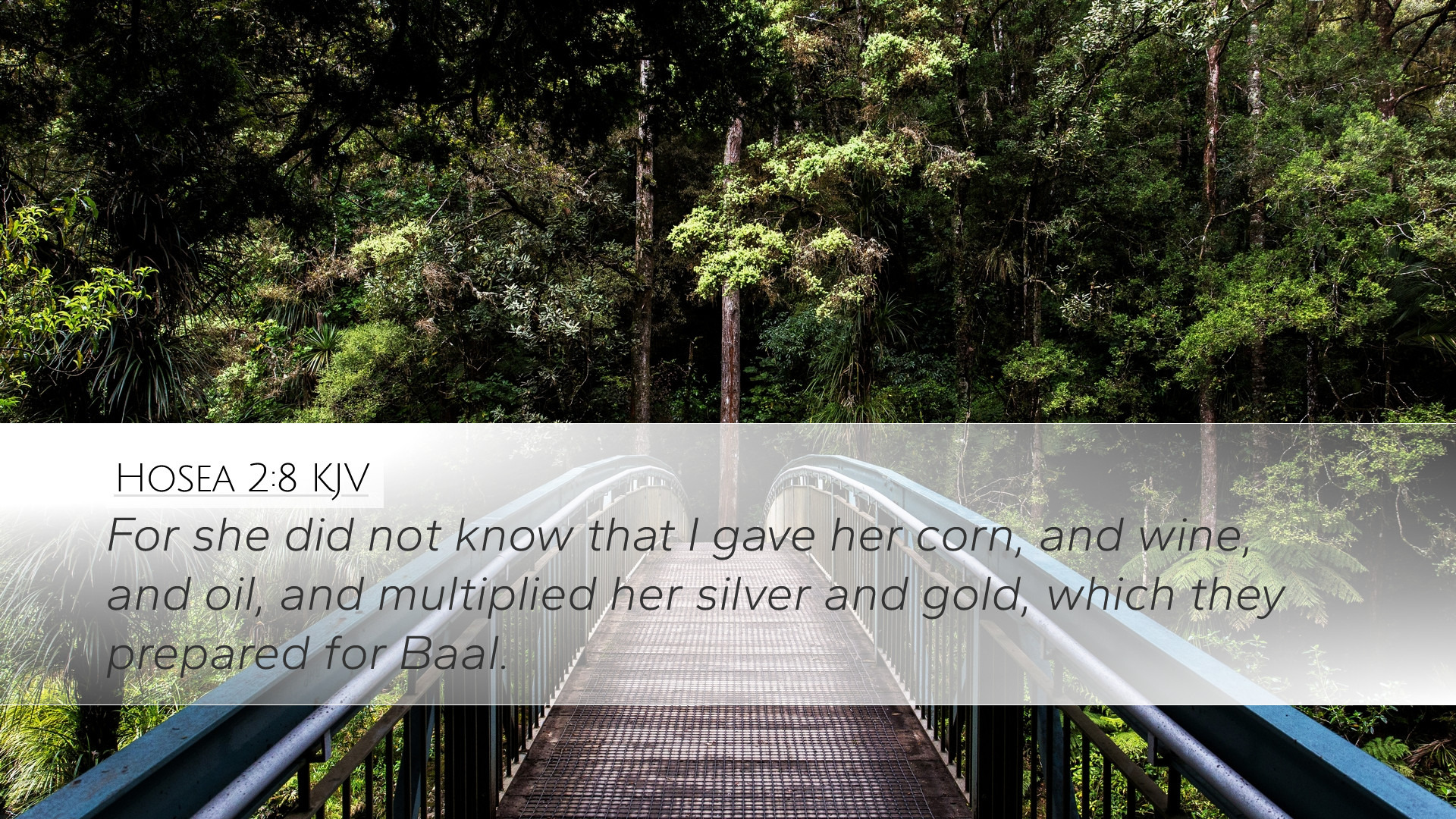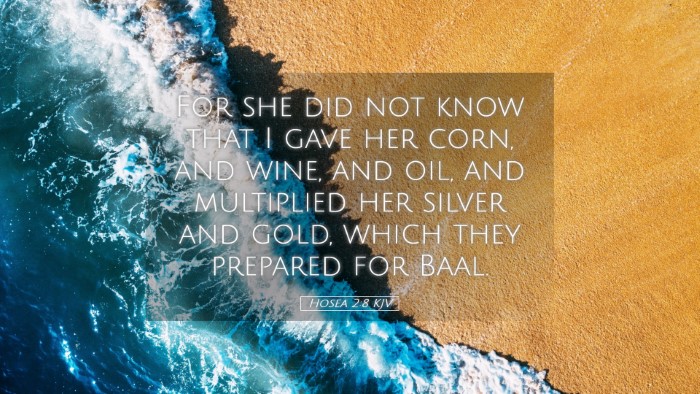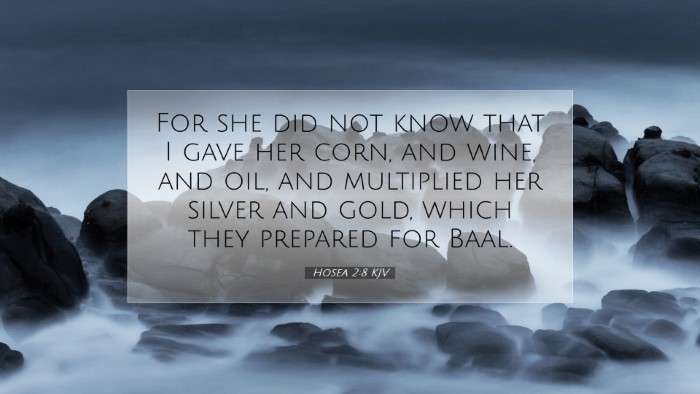Old Testament
Genesis Exodus Leviticus Numbers Deuteronomy Joshua Judges Ruth 1 Samuel 2 Samuel 1 Kings 2 Kings 1 Chronicles 2 Chronicles Ezra Nehemiah Esther Job Psalms Proverbs Ecclesiastes Song of Solomon Isaiah Jeremiah Lamentations Ezekiel Daniel Hosea Joel Amos Obadiah Jonah Micah Nahum Habakkuk Zephaniah Haggai Zechariah MalachiHosea 2:8
Hosea 2:8 KJV
For she did not know that I gave her corn, and wine, and oil, and multiplied her silver and gold, which they prepared for Baal.
Hosea 2:8 Bible Commentary
Commentary on Hosea 2:8
Hosea 2:8 states: "For she did not know that I gave her corn, and wine, and oil, and multiplied her silver and gold, which they prepared for Baal."
Introduction
This verse is a profound indictment against Israel's spiritual forgetfulness. God laments over His chosen people, expressing the depth of their ingratitude and misunderstanding of His providential care. In this commentary, we will explore several significant insights from public domain sources, providing clarity and depth for readers seeking to understand the intricacies of Hosea's message.
Contextual Background
The Book of Hosea is often recognized for its thematic concern for the faithfulness of God in contrast to Israel's unfaithfulness. Hosea was a prophet during a time of moral decay and idolatry in Israel. This specific verse underscores the fundamental disconnect between God’s blessings and Israel’s idolatry.
Theological Insights
-
God’s Provision:
Matthew Henry highlights that the abundance of corn, wine, and oil symbolizes God's generous provision for His people. These physical blessings represent spiritual sustenance and prosperity, which Israel fails to recognize.
-
Ingratitude:
Albert Barnes points out the grievous nature of Israel's ingratitude. Although God blessed them with material wealth, they redirected their worship toward Baal, a false god. This reflects a deeper issue of spiritual blindness.
-
Misplaced Devotion:
Adam Clarke notes that this verse reveals Israel’s misdirected loyalty. The wealth and blessings they received were intended to lead them to acknowledge the true God, yet they used those very gifts to worship a false deity.
Interpretative Reflections
Hosea 2:8 serves as a cautionary tale, warning against the perils of forgetting the source of one's blessings. This spiritual amnesia led Israel to a point of no return. The riches and resources, which should have been instruments of praise, became objects of idolatrous worship. This reversal of priorities is a significant theme throughout the prophetic literature.
The Role of Idolatry
In understanding this verse, one must grapple with the nature of idolatry. Barnes emphasizes that the act of idol worship signifies a rejection of God's sovereignty. By attributing their blessings to Baal, Israel not only dishonored God but also diminished their spiritual identity.
God’s Patience and Justice
Despite Israel's unfaithfulness, God exhibits patience, longing for their recognition of His grace. As noted by Henry, this reflects God's steadfast love, even in the face of betrayal. However, the call for repentance remains critical, as seen throughout the prophetic messages, where justice and grace are woven together.
Pastoral Applications
For pastors and spiritual leaders, Hosea 2:8 serves as a poignant reminder of the importance of fostering gratitude within the congregation. It encourages leaders to teach the community to recognize and acknowledge God’s provisions in their lives, thus avoiding the pitfalls of earthly distractions.
-
Encouraging Awareness:
Leaders should prioritize teaching on the nature of God's blessings in daily life, urging congregants to discern the spiritual significance behind material gifts.
-
Addressing Ingratitude:
Confronting issues of spiritual negligence directly can help reshape congregational values, redirecting focus from materialism back to worship.
Conclusion
Hosea 2:8 encapsulates a vivid portrayal of spiritual blindness and ingratitude in the face of divine providence. By understanding the context and implications of this verse through the insights of esteemed commentators like Matthew Henry, Albert Barnes, and Adam Clarke, readers can appreciate the urgency of recognizing and honoring God in all aspects of life. This verse calls us not only to reflect on our relationship with God but also to ensure that our responses to His blessings are rooted in gratitude and correct worship.


